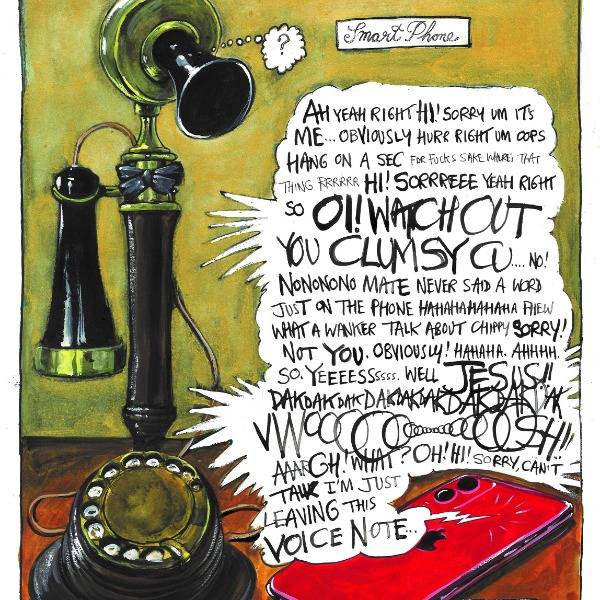There's a scene in the film What Lies Beneath in which the heroine has an altercation with a haunted bathtub. These things happen, I guess. But it was stretching credibility way beyond breaking point when later in the film she used the bath again. After all, it is a truth universally acknowledged that in the face of ghostly goingson it is important to run away, never to return, as fast as possible. And twice as fast as possible, if one is alone in a house, miles from anywhere, when suddenly one hears melodramatic music over the noise of a storm which is raging in the blackness outside. Happily, Penny and Primrose, the main protagonists of AS Byatt's shortstory, 'The Thing in the Forest' one of five in her new collection Little Black Book of Stories never have to deal with the shock of finding that their favourite rubber duck has been possessed by a poltergeist. However, they do, as children, bump into a 'thing'. In a forest. The precise nature of the thing isn't quite clear, but it stinks and eats a little girl, so clearly it's up to no good. Sensibly they hide, it passes by, and they never speak of it, or to each other, again. Until forty years later, that is, when for 'mysterious' reasons they both independently end up at the same forest. And they seek out the thing again.
Clearly, this is all very silly. And the whole 'thing' in the forest theme is not done particularly well. Stephen King does a much better job in his The Girl Who Loved Tom Gordon. Part of the problem with Byatt's story is that the pacing is all wrong. When there's a childeating thing wandering around, you're not that interested in what a local squirrel is having for its breakfast. Also, at the end, it really is very difficult to understand exactly what the adult Penny and Primrose are doing back in the forest searching out a beast that both sincerely believe ate a girl. But having said all this, there's no doubt that at times Byatt can really write. 'The Thing in the Forest' is worth reading just for one heartbreaking section where a tiny little girl, Alys, tries to persuade Penny and Primrose to let her come with them into the forest.
There are similar moments of excellence in the other stories in the collection. For example, 'Raw Material' which tells the tale of a failed writer, his creative writing class, and a brilliant new pupil, the 82 year old Cicely Fox is hilarious in its evocation of the foibles and jealousies of amateur writers, and their inability to write about anything other than their own lives. And 'A Stone Woman' is simultaneously poignant and disturbing in its account of how a grieving woman slowly turns to stone.
However, there is something about Byatt's writing which isn't quite right. Part of it is that she is just too fond of lists. Anyone who has ploughed through the Illiad's 'Catalogue of Ships' knows that it is quite possible to have too much of this kind of thing. Byatt admittedly isn't in this league, but she does have a penchant for sentences with lots of commas. And in 'Body Art' she pays homage to Homer with a catalogue too far of medical implements and curiosities.
The other worry about Byatt's writing in these stories has to do with plotting. It tends to come a poor second to characterisation and description. The denouement of 'Raw Material', for example, is a plot device straight out of the 'John and Jane gazed at the sunset unaware that their lives were about to change forever, as just at that moment a meteorite fell out of the sky leaving them both without legs' school of story telling. One gets no sense that the story unfolds according to its own innerlogic. Happily, there are no plot devices in 'The Thing in the Forest'. The trouble is that there is virtually no plot either.
The irony of these criticisms is that they are precisely of the kind that Byatt satirises in her treatment of the creative writing class in 'Raw Material'. No doubt more sophisticated readers will sympathise with her, and will complain that an overconcern with plotting is a sign that one has been reading too many popular novels. Maybe so. But what is true about these stories is that, with possible exception of 'Body Art', they just are not that gripping. If you're interested in reading a collection of genuinely spooky tales then you're better off with Stephen King's Hearts in Atlantis.
The Little Black Book of Stories is available from Amazon (UK)

